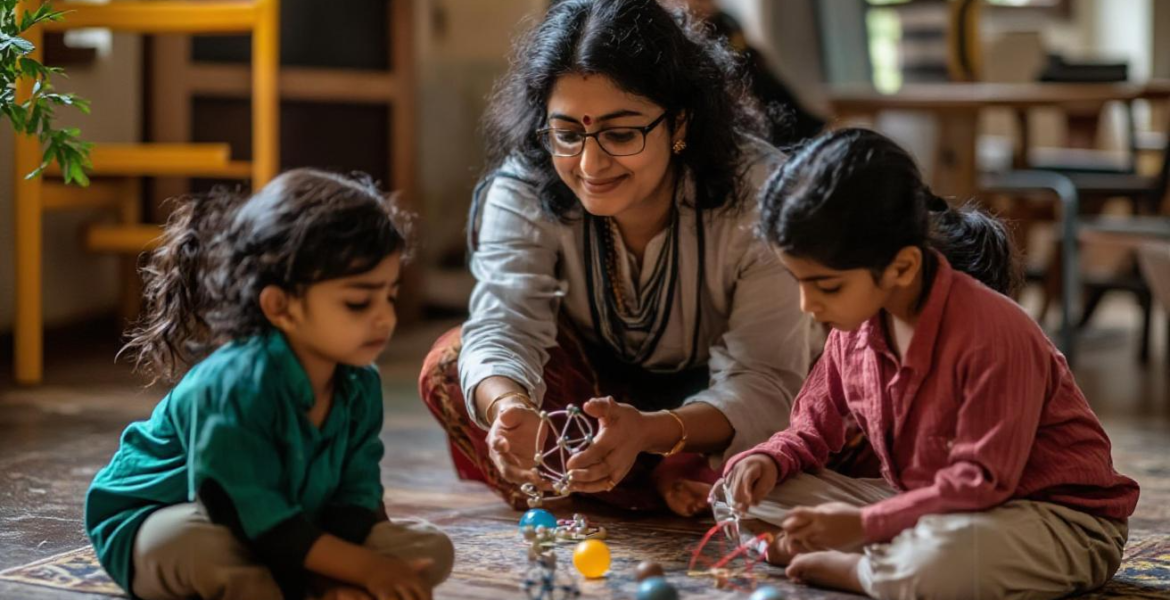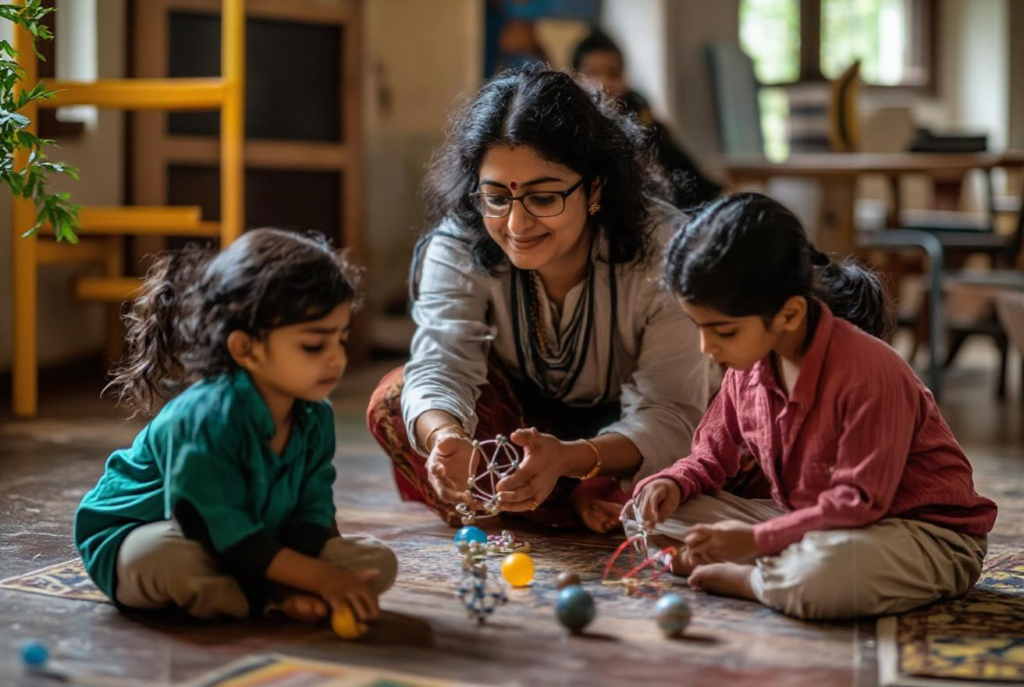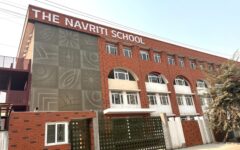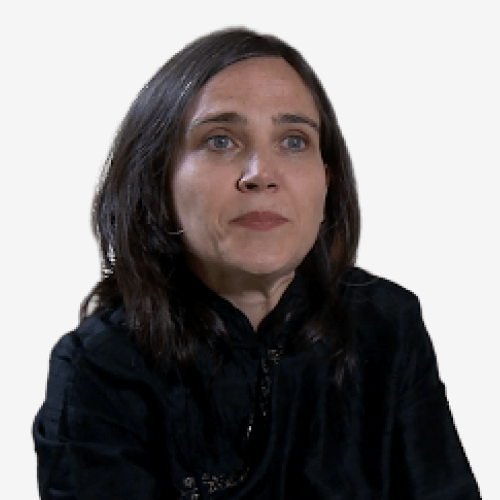From Brain Science to Classrooms: The Neuroscience Behind Navriti
August 13, 2025 2025-09-25 7:10From Brain Science to Classrooms: The Neuroscience Behind Navriti

From Brain Science to Classrooms: The Neuroscience Behind Navriti

Understanding how the human brain learns has long been a subject of fascination for educators and scientists alike. The field of neuroscience in education bridges these two worlds by applying insights from brain science directly to teaching methods and learning environments. One school that stands out for integrating these principles at the core of its philosophy is The Navriti School, renowned as India’s first precision schooling institution. At Navriti, education is designed not just as a transfer of knowledge but as a brain-based learning journey tailored to each student’s unique cognitive profile.
This article explores how neuroscience informs the educational strategies at The Navriti School, illustrating how scientific principles enhance learning outcomes. We will delve into what brain-based learning entails, how precision schooling transforms classrooms, and why this approach is redefining education in India.
What is Neuroscience in Education?
The Science Behind Learning
Neuroscience investigates the structure and function of the nervous system and brain. When applied to education, it helps explain how neural mechanisms support cognitive processes such as memory, attention, language, and problem-solving. Understanding these processes allows educators to optimize teaching methods to align with how the brain naturally acquires and processes information.
Brain-based learning leverages this knowledge by creating learning experiences that stimulate neural connections and promote long-term retention. For example, engaging multiple senses during lessons, spacing practice over time, and encouraging active participation all reflect neuroscience insights.
How The Navriti School Embeds Neuroscience in Education
- Individual Learning Profiles: Navriti employs cognitive assessments to map how each student learns best. This enables the design of customized lesson plans that cater to strengths and address weaknesses.
- Neuroplasticity-Focused Curriculum: Understanding that the brain can reorganize itself (neuroplasticity), Navriti encourages activities that challenge and stimulate neural growth, such as problem-solving, critical thinking, and creativity exercises.
- Emotional Well-being: Recognizing the brain’s emotional centers influence learning, Navriti integrates social-emotional learning (SEL) to support mental health and resilience.
Key Principles of Brain-Based Learning at The Navriti School
1. Active Engagement Enhances Memory
Studies in neuroscience show that active learning, where students participate through discussion, experimentation, and application, strengthens neural connections far better than passive listening. Navriti’s classrooms emphasize hands-on projects, interactive sessions, and real-world problem solving to boost engagement and deepen understanding.
2. Multi-Sensory Instruction Stimulates the Brain
The brain processes sensory information through different pathways. Integrating visual, auditory, and kinesthetic inputs enhances comprehension and retention. At Navriti, lessons often combine storytelling, visuals, music, and movement, accommodating varied learning preferences.
3. Spaced Repetition and Retrieval Practice
Neuroscience research supports the idea that spacing out learning over time and frequent retrieval of information improves long-term retention. Navriti implements this through cyclical revision schedules and formative assessments, helping students reinforce their knowledge consistently.
4. Growth Mindset and Neuroplasticity
The belief that intelligence can be developed, known as a growth mindset, is rooted in the brain’s capacity for change. Navriti fosters this mindset by encouraging effort, perseverance, and learning from mistakes, thus promoting resilience and lifelong learning habits.
Benefits of Neuroscience-Informed Precision Schooling at Navriti
Improved Academic Outcomes
By tailoring education to brain-based profiles, students at Navriti demonstrate higher comprehension, faster mastery of concepts, and better problem-solving abilities.
Enhanced Emotional and Social Skills
Understanding the brain’s emotional regulation mechanisms helps Navriti design programs that build empathy, self-awareness, and collaborative skills alongside academic knowledge.
Lifelong Learning Preparedness
Students trained with neuroscience-aligned methods develop metacognitive skills, awareness of their own learning processes, which equip them for continuous self-directed learning beyond school.
FAQs About Neuroscience and Precision Schooling at Navriti
Q1: What is brain-based learning, and how is it different from traditional education?
Answer: Brain-based learning applies discoveries from neuroscience to education, focusing on how the brain learns naturally. Unlike traditional education, which may follow uniform teaching methods, brain-based learning customizes instruction based on cognitive science to improve engagement and retention.
Q3: Why is emotional well-being important in brain-based education?
Answer: Emotions influence brain function and learning capacity. Positive emotional states enhance attention and memory, while stress can impair these functions. Navriti integrates social-emotional learning to support students’ mental health, enabling better academic and social outcomes.
Q4: How can neuroscience help students with learning difficulties?
Answer: By identifying specific cognitive strengths and weaknesses through assessments, neuroscience-informed education can tailor interventions to address challenges such as dyslexia or attention deficits, providing targeted support.
Q5: Is technology necessary for precision schooling?
Answer: While not absolutely necessary, technology facilitates adaptive learning and real-time data collection, making precision schooling more efficient and scalable. Navriti leverages technology alongside expert educators to optimize learning.
Conclusion:
The Navriti School exemplifies how integrating neuroscience in education and embracing brain-based learning can revolutionize teaching and learning. By pioneering India’s first precision schooling approach, Navriti demonstrates that education is most effective when it respects the brain’s natural learning processes, individualizes instruction, and nurtures emotional and cognitive development holistically.
As more schools worldwide recognize the power of brain science, the future of education promises to be more personalized, engaging, and empowering, equipping learners not just to absorb information, but to think critically, adapt, and thrive.

















